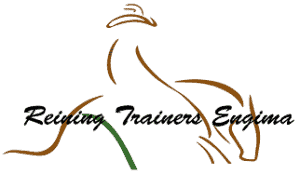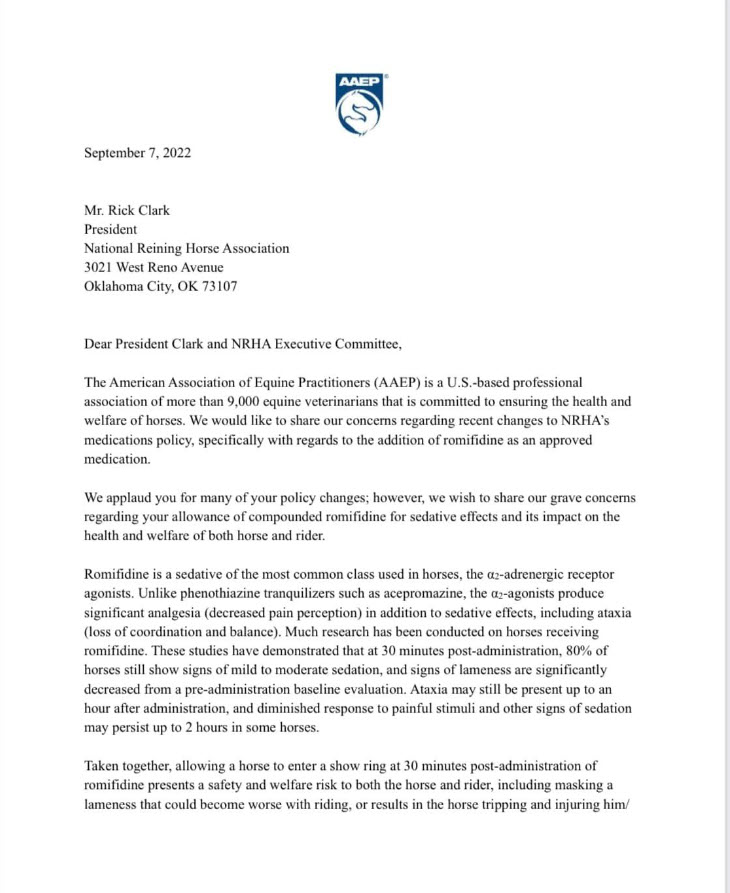Why the Secrecy from 2023 and beyond NRHA?
No other western sport has rules of secrecy like the NRHA has in their medications and welfare policy to be implemented from 2023 and beyond.
The decision-makers reviewing violations of rules for medications and welfare:
- AQHA – The Executive Committee – published members
- American Quarter Horse Association
- NRCHA – The Executive Committee – published members
- National Reined Cow Horse Association
- NCHA – The Medication Control Committee – published members
- National Cutting Horse Association
- NRHA – A secret group of people, and if a person becomes known to the membership as on the Committee, they are kicked out and replaced.
- National Reining Horse Association
- PRCA – Director of Rodeo Administration – published member
- Professional Rodeo Cowboys Association
 While the NRHA is boasting about their great new penalties, are they just distracting members and the public from the fact that there is no accountability for whether violations are acted upon? History says, most unlikely. Some members say it’s just more of the same ‘mushroom syndrome’. [The practice of being supplied with little or no information and often instead intentionally supplied with misinformation]
While the NRHA is boasting about their great new penalties, are they just distracting members and the public from the fact that there is no accountability for whether violations are acted upon? History says, most unlikely. Some members say it’s just more of the same ‘mushroom syndrome’. [The practice of being supplied with little or no information and often instead intentionally supplied with misinformation]
With the track record of the NRHA board members since 2015 on policy and enforcement, how will any member of the public know what is really going on – it’s all secretive.
You can read summary details below or check out each association’s rules book and policies.
Can You Trust the National Reining Horse Association?
With the outcry of allowing horses to be conditionally sedated 30 minutes prior to competition with Sedivet, the spotlight is square on the NRHA’s conduct. The American Equine Practitioners Association has written to the NRHA stating the drug should not be used, but it remains in the policy.
Even more astonishing is the NRHA’s admittance of failing to take action on horses testing positive for banned drugs, allowing members to keep their prize money and awards. Did a futurity winner get paid? A derby winner? No one will ever really know except those in the secret inner circle.
The NRHA Futurity is just a few months away, and new rules don’t start until next year. So how do the public and members know which horses are drugged?
Did you know:
- AQHA spends more than $1 million annually to test for evidence of controlled substances and/or tail alteration in horses competing in AQHA-approved events.
- In 2021, the NRHA spent approximately $158,000 whilst boasting prize money in the millions.
- NRCHA – positive drug tests, all prizes and awards are immediately removed, and set penalties to apply
- NCHA – have on-the-spot fines for horse abuse at shows
Dig a little deeper to read more about the association policies.
NRHA Medications Hearing Panel – The Secret Society
The NRHA Medications Hearing Panel is comprised of individuals whose names are to remain strictly confidential to the NRHA membership. The individuals who sit on this panel may be veterinarians, NRHA stewards, NRHA professionals, NRHA non-professionals, etc. The NRHA Board of Directors approves the Medications Hearing Panel. Should a member of the hearing panel be known by NRHA members for holding that position, he or she will be removed and replaced by the NRHA Board of Directors.
AQHA:
VIO505. DISCIPLINARY AND APPEAL PROCEDURE. Executive Committee Jurisdiction: The Executive Committee is the forum within AQHA that, initially or ultimately, hears or reviews evidence of alleged violation of rules and regulations by members or non-members, decides all matters pertaining to registration of horses, and hears appeals from other committee action. A majority vote of the Executive Committee shall determine guilt, and its decision and action shall be final and binding on all parties.
AQHA spends more than $1 million annually to test for evidence of controlled substances and/or tail alteration in horses competing in AQHA-approved events
NRCHA
(1) Presence of such medication or drug in a horse participating in an NRCHA-approved event shall be grounds for the Executive Committee to take the following action if it is determined that the use of said drug or medication was not within the guidelines set forth in the Therapeutic Medication Addendum following subsection (j) of this rule:
(A) The horse shall be disqualified from all classes in which it participates at the show and all awards and monies must be returned and horse will not be allowed to be shown for a period of 90 days.
PLUS
1) In a first offense, in addition to the above, the responsible individual(s) will be fined $500 each. Responsible individual(s) will be suspended until payment is made and reinstatement fee determined by the board is paid.
2) For the second offense, in addition to the above, responsible individual(s) will be fined $1,000 each. Each individual receiving a second offense will be suspended for a period of 3 months and will not be reinstated until payment is made and reinstatement fee determined by the board is paid.
3) For the third offense, in addition to above, responsible individual(s) will be fined $2,500 each and suspended until review by the Ethics Committee and NRCHA Board. At that time, the NRCHA Board will determine the length of suspension. The individual will not be reinstated until payment is made, the suspension time served, and reinstatement fee determined by the board is paid.
NCHA:
NCHA Medication Policy
Any horse found to have a prohibited medication residue will be referred to the NCHA Medication Control Committee. This Committee is to consist of six persons, being NCHA general manager, two NCHA directors, two NCHA endorsed veterinarians, one NCHA member/trainer.
- The NCHA Medication Control Committee will determine whether an offence has been committed and what penalty shall be imposed.
Additional Points of Interest with NCHA:
ON THE SPOT FINES
1) Training equipment (rings, tie-downs etc.) applied to a horse in the contest area, warm-up area or loping pen Fine: $150
7) Excessive pulling, jerking or spurring of your horse at an affiliated NCHA event. Fine $500
8) Any abuse of an animal on ground which causes an animal’s mouth, nose or sides to bleed. Fine $500
9) Slapping or hitting an animal forward of the wither. Fine $500.
© 2022 Reining Trainers Enigma





